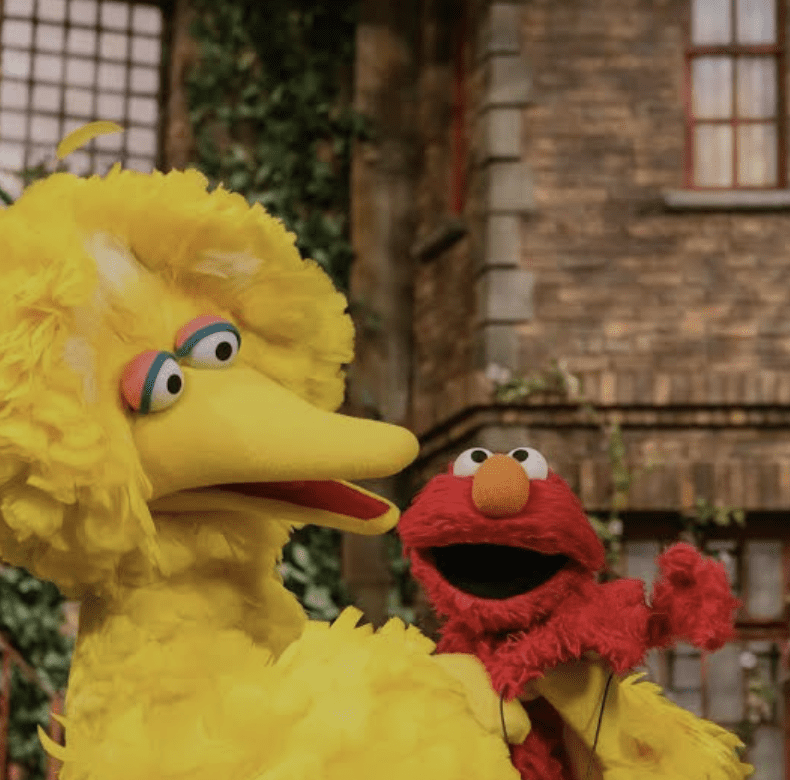More than a decade ago, I was asked by then-Providence Journal Vice President and Editorial Pages Editor Ed Achorn to write freelance editorials for the newspaper. One of the more creative submissions I did focused on the high-profile deal signed between the popular PBS educational children’s TV program Sesame Street and HBO.
Here’s the opening paragraph from the Aug. 22, 2015 editorial, “For 45 years, Sesame Street has been brought to you by the letters ‘P,’ ‘B,’ and ’S.’ Starting this fall, those letters will change to ‘H,’ ‘B,’ and ‘O.’”
That was then, this is now. The letters have changed from “H,” “B,” and “O” to “N,” “E,” “T,” “F,” “L,” “I,” and “X.” Doesn’t roll off the tongue quite as poetically, but it’s a huge moment for the venerable show.
Sesame Street first premiered on National Educational Television on Nov. 10, 1969. It would remain on this network until May 8, 1970, when NET was replaced by PBS. The show premiered on PBS on Nov. 9, 1970, and has remained there ever since.
The five-year deal with HBO turned into a profitable venture for Sesame Street. There were total of 35 episodes per season, which was up from PBS’s set schedule of 18. Each episode was first-run for HBO’s paid subscriber base. PBS was then allowed to run these episodes for free nine months later.
Naturally, there were critics of the Sesame Street-HBO deal.
My editorial included Jessica Winter’s Aug. 13, 2015 article in Slate. She argued that “Sesame Street was founded to help low-income kids keep up with their more affluent peers.” Winter believed it became “the property of a premium cable network,” which meant that a “program launched to help poor kids keep up with rich kids is now being paywalled so that rich kids can watch it before poor kids can.” There was also Arthur Chu’s Aug. 17, 2015 piece in Salon. He argued that Sesame Street “was a show defiantly for and about the urban poor, demanding that the rapidly growing demographic of middle-class suburban kids who watched it – kids like me – adapt to that culture, rather than adapting itself to us.” In his view, “when it comes to the ongoing segmentation of our media – our children’s media – into premium content for the affluent and trash for everyone else, I’m very grouchy indeed.”
It wasn’t terribly surprising that left-wing voices like Winter and Chu overreacted to this deal. They bought into the argument that Sesame Street’s original mandate of providing quality education for low-income children would get lost in the shuffle. As you may have already guessed, this didn’t happen at HBO when the arrangement officially started on Jan. 16, 2016. It also didn’t occur when the show was shifted to HBO’s sister station, HBO Max, in 2020.
Unfortunately, HBO Max turned out to be problematic in different ways.
In August 2022, it was announced that 200 Sesame Street episodes were being removed by the streaming platform. There were some suggestions by Variety and others that it was a cost-cutting measure, which certainly makes sense in this day and age. Others wondered if some of the older content was triggering progressive sensitivities. That would be surprising on the surface, since Sesame Street is a classic representative of modern liberal ideas and values. Yet, as I’ve noted in the pages of the Washington Times and Wall Street Journal, there are actually small glimmers of conservative ideas and thoughts floating around in this show’s format.
The bigger news occurred last year. Max announced on Dec. 13, 2024 that it was going to wind down its involvement with Sesame Street. “It has been a wonderful, creative experience working with everyone at Sesame Street on the iconic children’s series and we are thrilled to be able to keep some of the library series on Max in the U.S.,” Max said in a statement provided to Deadline. “As we’ve launched Max though and based on consumer usage and feedback, we’ve had to prioritize our focus on stories for adults and families, and so new episodes from Sesame Street, at this time, are not as core to our strategy.”
This was a massive body blow to both Sesame Street and Sesame Workshop. HBO and Max’s financial contributions to the former had been a godsend, to put it mildly. Sesame Street reported revenue of $171.7 million US in 2024 alone. (The New York Times has reported that HBO paid Sesame Workshop between $30 to $35 million US a year for new episodes.) This loss of income led to layoffs in March, and a series of discussions with the Trump administration related to impending cuts in federal funding.
The Sesame Street-Netflix deal makes sense in principle. The Washington Post noted on May 19 that while the price tag hasn’t been revealed, “but experts expect the new deal to bring in far less revenue – but potentially more viewers – than Sesame received under the partnership with HBO and then Max, the streaming service now known as HBO Max.” Moreover, Netflix has over “300 million subscribers and other children’s programming, which may draw more families with young viewers to the service.”
There are some other interesting parts to this new deal, too. The new season will be broken up into three parts. Sesame Street’s new episodes on Netflix will air for free on PBS without a delay for the first time in a decade. The program has also lost the interest of younger viewers in recent years, which they’re hoping to recapture in short order.
Will the shift from HBO and Max to Netflix help Sesame Street gain new viewers, new revenue streams — and, most importantly, a new lease on life? We’ll find out…and maybe at a faster pace if you tell me how to get there!
Michael Taube, a longtime newspaper columnist and political commentator, was a speechwriter for former Canadian prime minister Stephen Harper.






